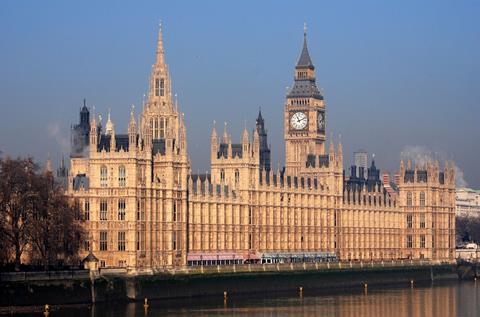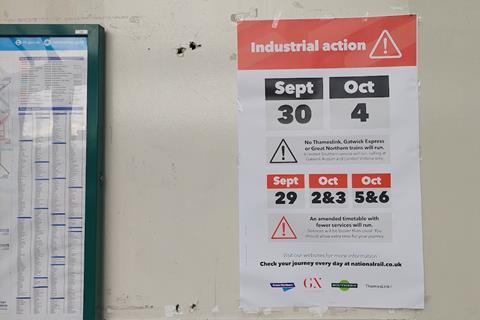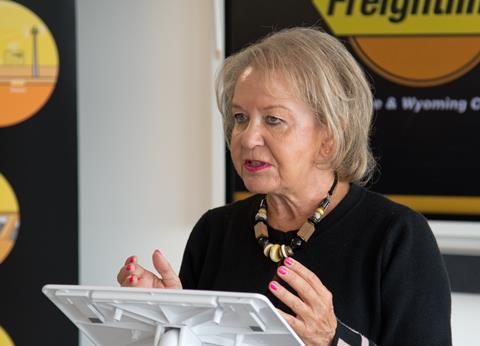
UK: With the next general election looming, senior rail industry figures are seeking to engage with the Labour Party in the hope that a change of government by early 2025 would herald a change in the fortunes of the industry amid an increasingly bleak outlook.
Rail Business UK has spoken with several senior rail leaders, many on condition of anonymity to protect relationships, and can report serious frustration across the sector at a lack of clarity over a long-term rail policy from the current government.
Treasury control of the day-to-day running of the railway is widely regarded as overbearing, with decisions on issues such as rolling stock allocation being routinely approved by the Department for Transport before being blocked by the Treasury.
Against this background, a significant campaign to engage with Labour on transport policy is now underway.
Lack of strike progress ‘exhausting’
Maintaining its position of the past few months, the current government is still refusing to engage in further negotiations with ASLEF and RMT over the long-running disputes regarding pay and working practices in the industry.

According to one senior figure, this is proving ‘exhausting’ for rail managers, who now anticipate that ministers will allow the strikes to continue ‘up to the general election’ if unions do not agree to the offers which have been on the table for much of the year.
Industry leaders also expect the strikes to be used as an election ‘wedge issue’, with the Conservatives attempting to appeal to core voters by linking any vote for Labour to support for ‘railway strikers’.
In addition, worries are mounting about the lack of urgency to establish the industry’s proposed ‘guiding mind’, Great British Railways, while civil servants have shown no intention of releasing the vice-like grip over passenger operations introduced under DfT’s National Rail Contract model.
Taken together, these are widely regarded by industry insiders as a de facto preparation for ‘a managed decline of the railways’.
It is understood that Labour Party sources believe that the Treasury sees the rail industry as an unnecessary use of public money; Treasury officials have reportedly suggested that station and route closures, coupled with cuts to timetables, could be implemented after the election if the Conservatives secure another majority.
During a round of interviews with BBC local radio stations on September 28, Prime Minister Rishi Sunak routinely evaded questions about the future of High Speed 2. Sunak is expected to make a speech at the Conservative conference in Manchester starting on October 1 which will endorse a package of motorist-friendly measures, amid an expectation that the party’s election campaign will heavily promote road use at the expense of public transport.
Rail investment ‘vital’
The Labour MP for Doncaster Central Dame Rosie Winterton addressed the uncertainty over the industry when she attended the opening of Freightliner’s training academy in Doncaster on September 27.

‘We have an election coming and this is a very good point to be describing what future governments ought to be looking at, to ensure the country thrives’, she said, giving backing in particular to the roll-out of ERTMS across the rail network. ‘ERTMS feeds into work towards net zero obligations; increasing rail freight volumes is absolutely vital to that. Rail freight generates nearly £2·5bn in economic and environmental benefits to the UK each year, but there is so more that can be done’, she added.
She commented on suggestions that the government had been considering publishing targets for rail freight growth, but that this may not now go ahead. ‘I would want to see that happen. Each tonne of freight moved by rail instead of road reduces carbon emissions by 76% — that is a huge figure. The government needs to set the agenda; to give the industry the confidence to invest, there has to be a strategy not a vacuum.’
GBR backing
Winterton confirmed that the formation of Great British Railways is something Labour supports and underlined her party’s frustration at the continuing delay to its implementation.
‘I’m disappointed that we might be in a situation where we don’t see the legislation in the King’s Speech, that is the very strong rumour. I think again we need to be making the point that an organisation like Great British Railways needs to have powers, it needs to be able to pull levers, so we will continue to push for that’, she explained.
She added that current Shadow Secretary of State for Transport Louise Haigh was looking at ‘what levers the industry does need in order to improve investment and future proof it’.



